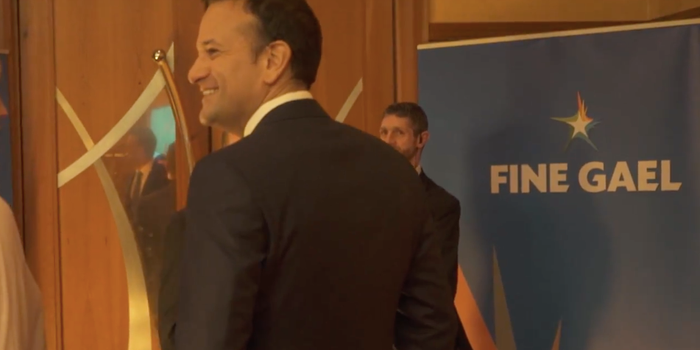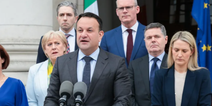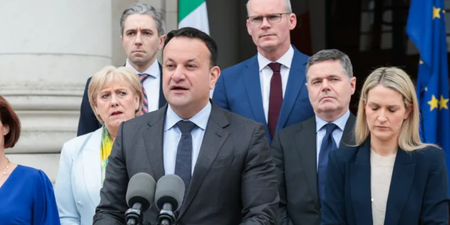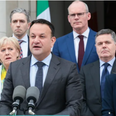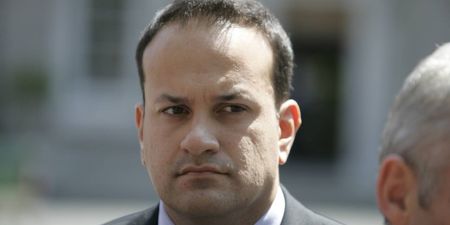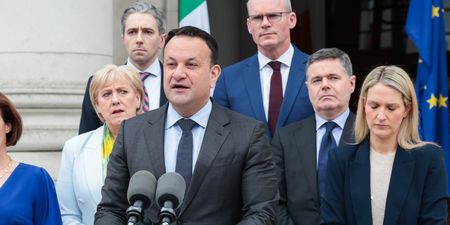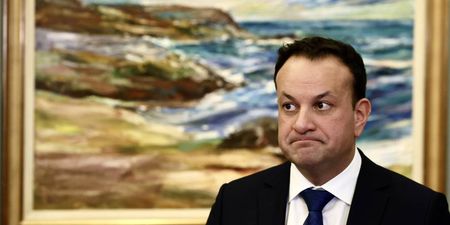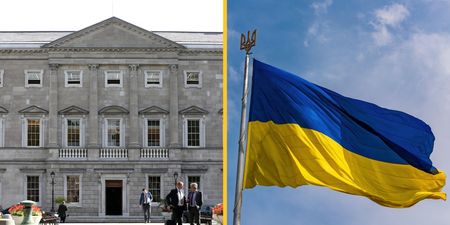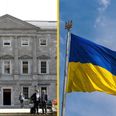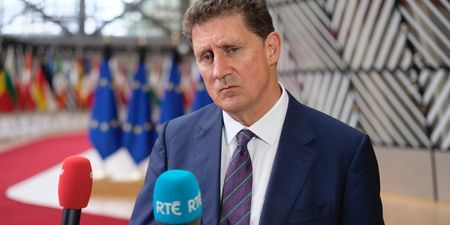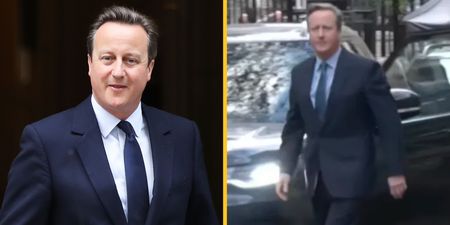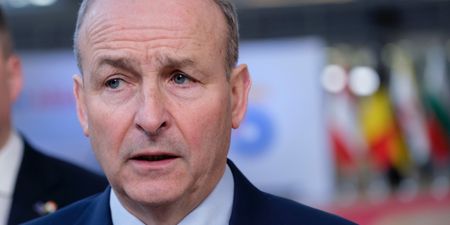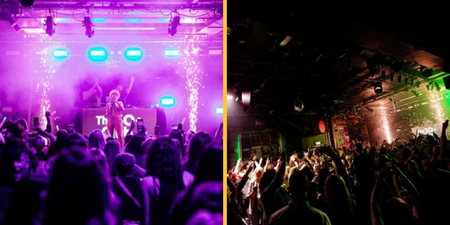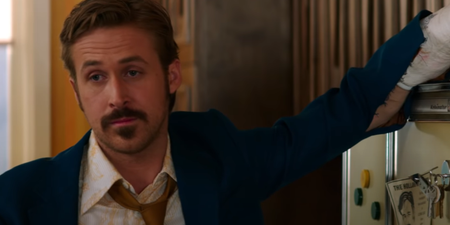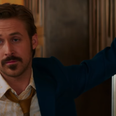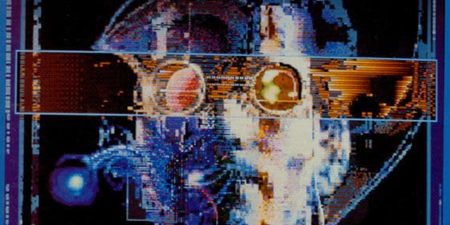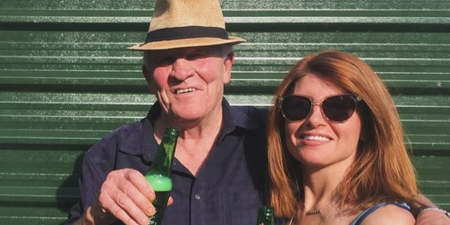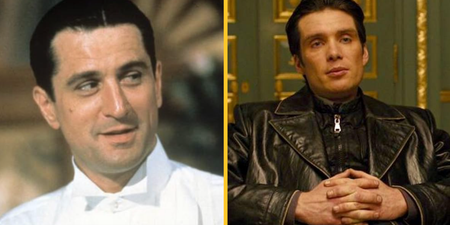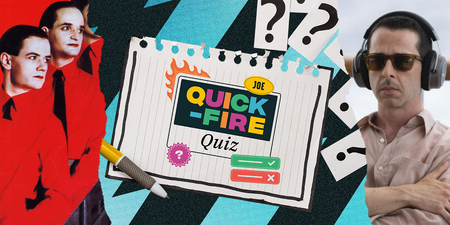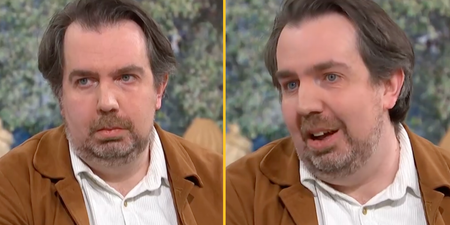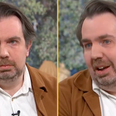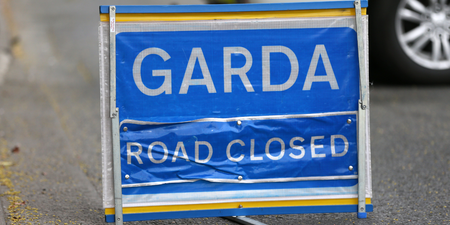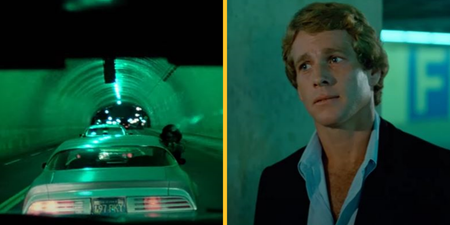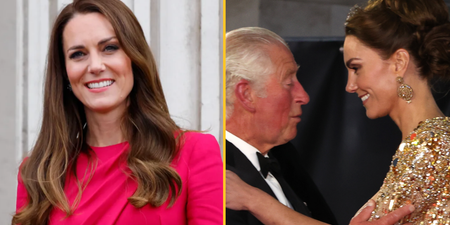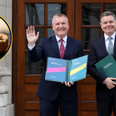“I’m the Director of Elections for Dublin Bay North, and I can’t tell you how many doors I knocked on—”
“Finish your question, Barry, don’t just repeat yourself.”
“Where is the demand for this referendum coming from?”
“From the women of Ireland!”
For just a moment, it looked as though Minister for Health Simon Harris’s plans for a civil debate on the Eighth Referendum were about to come undone.
The Slieve Russell Hotel’s Erne Suite was overmatched by its crowd, and the Fine Gael National Conference’s schedule had been put wildly off course by the evidently unexpected level of interest surrounding the issue of what is to be done with Ireland’s best-known and most-discussed constitutional amendment.
The discussion panel, which featured Fine Gael heavy-hitters like Minister Harris, TD Kate O’Connell and Chair of the 8th Committee Senator Catherine Noone, had hitherto survived all sorts of questions and comments from the floor. From Louth’s Anne Bardon, who offered that repealing of the Eighth would in effect see the reinstatement of the death penalty for vulnerable babies, to Geraldine Gregan, who passionately offered her own story of a crisis pregnancy resulting in adoption to a standing ovation from sympathetic members of the crowd.
Now, it seemed set to come off the rails. Former Young Fine Gael President Barry Walsh, apparently unmoved by Ms. Gregan (who had spoken immediately before him), wanted to know whether the referendum would be electorally profitable for the party and where, if anywhere, the demand for the referendum was even coming from.
It was then that the seats started to get a little hot, and for a few minutes speakers were lucky to even make it as far as mid-sentence before being cut-off. TD Kate O’Connell was interrupted by a man in the crowd who asked “What about the rights of the baby?”
Wexford party member Peter Cosgrove observed that, on today’s evidence, the lead up to the referendum would be “the nastiest campaign we’ve seen in our lifetime.” He specified that he was referring to the women who interrupted Barry Walsh, and not the woman who accused pro-choice activists of being covert proponents of the death penalty. Plenty of hear hears could be heard as men like Walsh and Cosgrove questioned the wisdom of having the referendum at all. It was Walsh who would, just days later, drag the party into a front-page scandal by his behaviour on Twitter, having been accused of repeatedly using the word “bitch” in reference to his political opponents, while crudely attacking others like Tara Flynn on the matter of abortion. On Friday, Walsh resigned from his role on the Fine Gael Executive Council, apologised unreservedly, while citing a trial by media. In fact, it was members of his own party who had rendered the crucial verdict.
Minister Harris brought last Saturday’s session to an end with its major questions unsettled. When asked whether the party does have an official stance on repeal of the Eighth Amendment, Harris offered that all party members, TDs included, would be afforded a free vote when it came to the issue. Which is to say that Fine Gael don’t have an official stance on repeal of the Eighth Amendment, and it is just as well, because if they did, it’s easy to see how the Slieve Russell’s Erne Suite could have gone from a simmer to a boil.
The minister closed the discussion by presenting his own personal view, and it certainly sounds as though he is gearing up to be a rather vocal supporter of the move to repeal the Eighth, saying that he has “sat in many rooms with far too many women who have found Ireland to be too cold and too lonely a place when it comes to facing a crisis pregnancy.” Harris tempered the burst of personal opinion with a call to avoid demonising either side of the argument, and as for the deep divisions that the discussion had exposed, he simply said, “That is democracy.”
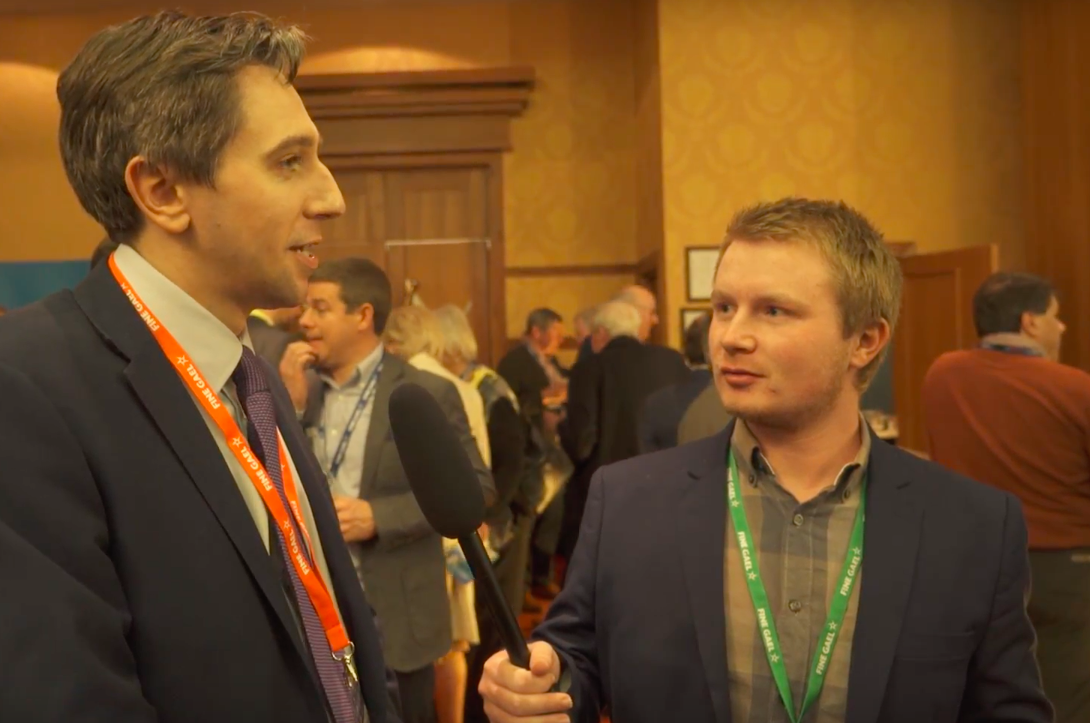
A congenial applause followed the minister’s remarks, but the truth had been laid bare. Some had been moved to tears by the discussion, some had been moved to their feet, some had been moved to interrupt their own party’s TDs.
Fine Gael has no stance when it comes to repealing the Eighth, because Fine Gael decisively do not agree when it comes to repealing the Eighth.
Modern history
Listen to any speech, overhear any chat, speak to any member at last weekend’s Fine Gael National Conference in Cavan and you’d be forgiven for thinking that they’d all forgotten the events of the past 19 months.
In the February 2016 general election, Fine Gael lost over a quarter of its seats in the Dáil.
Even with the help of its previous Independent coalition partners and the emaciated Labour Party, Fine Gael were unable to form another government. It wasn’t until late April that Fianna Fáil, Fine Gael’s old nemesis and the only other party to ever lead an Irish government, agreed to prop up a Fine Gael minority-led government. Since then, the government’s ability to so much as pass legislation has depended on a coalition formed with their worst enemies.
In March of this year, Enda Kenny was forced out the door for his botched handling of a smear campaign against Garda whistleblower Maurice McCabe, leaving the party without its leader of 16 years who had seen them to their most promising parliamentary success in several decades. Kenny was followed out the door by Michael Noonan, a Finance Minister who Fine Gaelers credit with righting the country’s economic course at the expense of political expediency.
The ensuing leadership contest was won by Leo Varadkar, a Trinity College-educated doctor who lost the grassroots vote of his own party in the leadership election by an astounding margin — 65% to 35%. Nevertheless, he comfortably won over the elected officials of his own party, and swept rival Simon Coveney to the side. At the age of 38, Varadkar became the youngest Taoiseach in Ireland’s history, leading a party that had just lost two talismanic members, and a government that was depending on its own worst enemy for survival.
Varadkar’s Friday night keynote address to the conference struck some commentators on Twitter as “robotic”, but the party’s leader was no match for the mechanical applause of the crowd, like clockwork, almost instinctive. Support for the man is currently built-in to the party membership, and asking members to rate his performance so far as Taoiseach out of 10 returns full marks on almost all occasions.
To hear the Fine Gael members, the majority of whom presumably favoured Coveney for leader this summer, hammer out a migraine of applause for Varadkar at the end of each teleprompted paragraph would forgive you for thinking that Leo Varadkar had somehow written his old rival out of the party’s memory rather than made him the Minister for Foreign Affairs.
As for Coveney himself, he wore his defeat with good humour. When asked by one Fine Gael what the party was doing to improve the gender balance of the cabinet, Coveney gave a chuckle and said “As we all know, I made a great effort to be the one who chooses who’s in the cabinet.” The Fine Gael crowd loved that one.
The crowd whooped as veteran TD Michael Ring swung wild digs at Sinn Féin and Fianna Fáil from the main hall podium, with all the confidence of a man whose chest was millimetres from the finishing tape. Varadkar himself won praise inside the building for ignoring his opponents throughout his keynote address, consigning them to an afterthought, a footnote on a future that’s all Fine Gael.
Homelessness, an issue that is certainly foremost in the minds of the public at large, did not get its own discussion panel, even if it was name-checked by party several party members whom I spoke to on Friday evening. Preparedness for Brexit is heavy on rhetoric but light on real talk. On Sunday morning, a few casual punters conceded amongst themselves that it had been “bad form” for Varadkar not to mingle with his membership on Friday or Saturday after his scheduled stage appearances. Nevertheless, nobody in attendance was looking at Taoiseach Leo Varadkar and pining for Simon Coveney. Nobody was crying into their wine glass over the good old days under Enda. Most importantly, there was no fearful, furtive chat of Fianna Fáil’s apparent resurgence.
Where’s the party at?
While TDs at the conference were focused on the “Republic of Opportunity,” grand slogans of “Making Work Pay” and transforming Dublin into the tech capital of Europe, no discussion panel drew a fraction of the crowd that the Eighth Amendment panel did.
Almost nobody was there to hear Paschal Donohoe reassure the nation that Fine Gael have put cash in reserve so that the country would fare far better if we were hit with a shock like 2008’s global recession. Ministers Regina Doherty and Richard Bruton discussed the party’s ambitious plans to train all teachers in mental health and improve opportunities for those unsuited to academics in front of what was, essentially, an empty room.
And while the rooms may have emptied once the granular details of policy came to the table, in the foyer voters had never been more certain of their allegiance to Fine Gael, and its new, youthful leader. While plenty of Fine Gael members might not be able to tell you exactly what Minister for Social Protection Regina Doherty is doing to make life easier for families, they know that she’s the woman to do it. As the band played and the beers were drained, not a single member of Fine Gael expressed any discontent with the leader of their party, with any of their TDs, with the party’s direction, with the party’s electoral prospects. All the cruel words and dismissive tones were reserved for opponents (or the opponent’s-in-colleagues clothing, Fianna Fáil).
One woman described Richard Boyd-Barrett as “weird” and Paul Murphy as “weirder,” another described Micheal Martin as “dangerous.” Senator Catherine Noone called Danny Healy-Rae a “gombeen.” Michael Ring lambasted Sinn Féin as unwilling to govern and Fianna Fáil as incapable of governing. Fine Gael cannot see anyone but Fine Gael anywhere near the reins any time soon.
But feel around Fine Gael’s facade and the cracks are there to be found. Just days after his National Conference spat with Kate O’Connell et al., Barry Walsh was reported by the Dublin Bay South TD for abusive comments he’s been making online about women for years. On Friday, Leo Varadkar called on Walsh to resign from the party’s executive. Later that day, Walsh heeded the Taoiseach’s call.
But in the Erne Suite of the Slieve Russell last Saturday, Barry Walsh didn’t seem like a Fine Gael outcast — though he was soon to be cast out. Wholly confident in his referendo-scepticism, he drew applause and approval from the crowd, although many were probably not aware of the views he’d shared on Twitter. When Mr. Cosgrove lamented the nastiness of the debate, Barry Walsh’s own alleged nastiness had not even come to light. On a parliamentary level, it seems that Fine Gael is going somewhere that many in their ranks will not readily follow.
Nevertheless, Fine Gael is approaching the future without fear. Buoyed by a fresh-faced leader who wins comparisons to Justin Trudeau and Emmanuel Macron in the international media, as well as several dynamic ministers, Fine Gael see themselves surviving Brexit, surviving the homelessness and housing crises, and surviving any internal rupture brought about by the Eighth referendum. Given what they’ve survived over the past two years, why not swagger about a bit? After all, deep down they know there’s plenty that could bring it all crashing down before the next election.
LISTEN: You Must Be Jokin’ with Conor Sketches | Tiger Woods loves Ger Loughnane and cosplaying as Charles LeClerc
